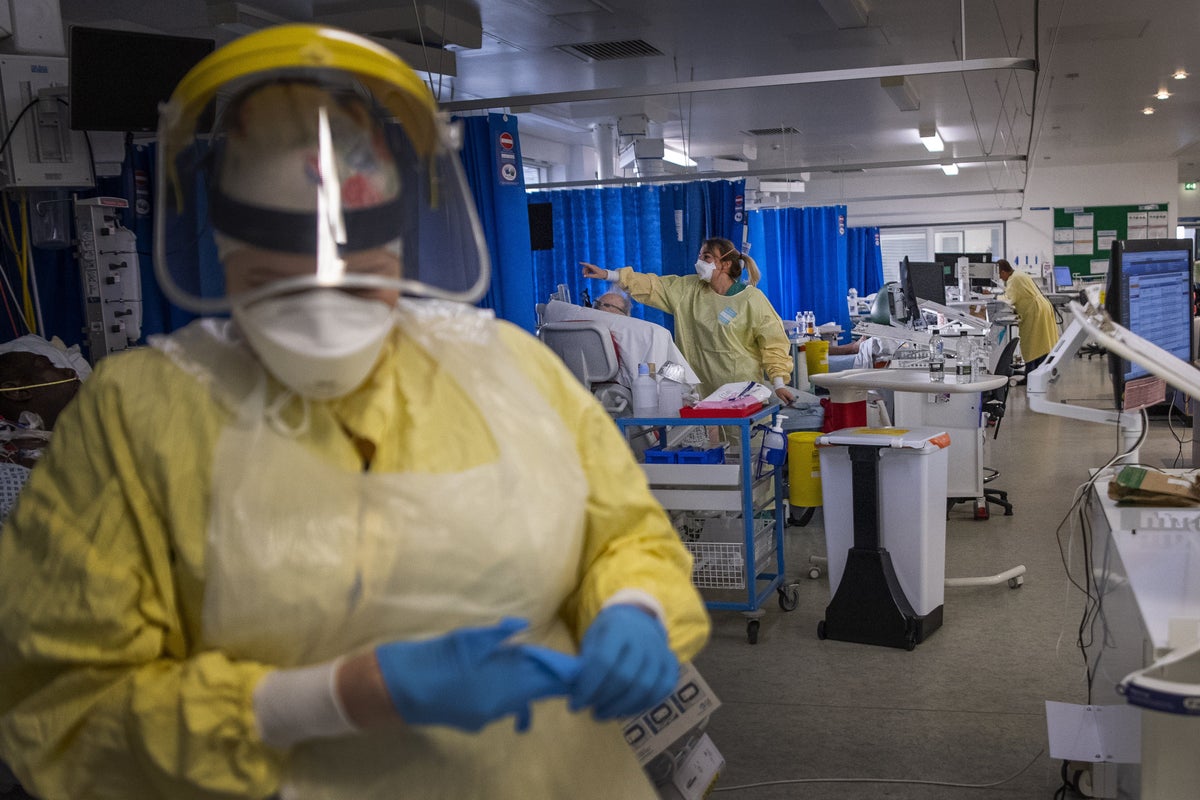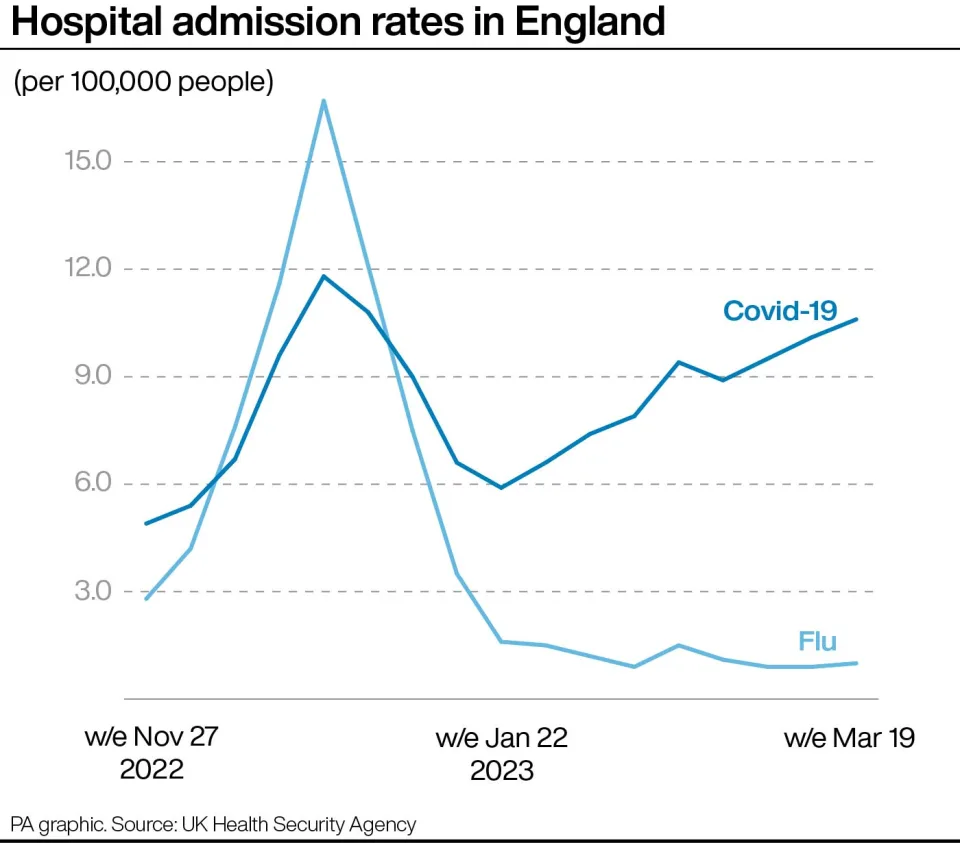
Experts have criticised the government’s decision to axe the Covid ONS survey, which provides official estimates of UK infections.
It comes as Covid-19 cases in England have climbed to their highest level since the start of the year, as the Office for National Statistics (ONS) published its final report on the infection on Friday.
An estimated 1.7 million people in private households in the UK are likely to have had coronavirus in the week to 13 March, compared with 1.5 million in the previous week.

Oxford University virologist Professor Aris Katzourakis called the decision “incomprehensible” and warned that the UK could be “fighting blind” against Covid in the absence of regular updates.
“I think it’s a real disservice to both the protection of public health and the advancement of science,” Professor Katzourakis told The Independent. “I don’t understand why it’s been stopped.
“We’re absolutely going in blind without it. It’s been a model for the world to emulate. The ONS survey has been so useful in knowing exactly what’s happening, how concerned to be, and whether a policy response is required.”
He added that it was concerning that people had to rely on secondary analysis, such as that provided by the Covid ZOE app, to monitor the latest developments.
The latest data shows that in England, the estimated percentage of people testing positive for Covid increased in the North West, the East Midlands and the South East.
The figure also increased among children aged between two years old and 15/16 (those in year 11 at school), and among people aged 50 and over; the trends were uncertain in the remaining age groups.
Thomas House, professor of mathematical statistics at Manchester University and one of the academic collaborators on the survey, said that while he accepted the ONS survey had been costly to run and there was a need to save money, it was a shame to see the project end at this point and not run for slightly longer.
“It would be good for us to have an ongoing big science project for the community surveillance of infection, given we were the first place in the world to attempt it,” he said.
“The survey was designed to be scaled up and down, so a better decision might have been to just scale it down for a bit – especially as we don’t know where Covid will settle in terms of long-term prevalence, and we don’t know what next winter is going to look like.
“We’re now in the phase of living with Covid, so we’re past the point where the survey could inform or change government policy decisions. But there is a case to be made for it continuing, just because it might identify something we really weren’t expecting.”
Prof Katzourakis said the increase in cases could be the result of waning immunity, or possibly a variant-driven wave, but with reduced official variant data, this is also unclear.
In the absence of official estimates of Covid-19 levels, hospital admissions will be one of the few remaining sources of data to give any sense of the prevalence of the virus, along with death registrations.
In recent months the survey has helped to track the scale and progress of the Christmas 2022 wave, which peaked at nearly 3 million infections, as well as the latest rise in cases of the virus.
Professor Majeed Azeem, head of public health at Imperial College London, said that the cost of the ONS survey meant it was now taking funds away from other public sector needs.
“We will still have some information on Covid. The survey is very expensive, costing many millions of pounds,” Professor Azeem told The Independent. “We don’t measure other infections like tuberculosis and flu, so what the government is saying is treat Covid like other infections. The NHS is under a lot of pressure, and so is public spending, so money spent on the survey could be spent elsewhere.
He added: “I’m not massively concerned, as long as they have measures in place to track Covid as they track other infections.”
Mark Woolhouse, professor of infectious disease epidemiology at Edinburgh University, said the survey had been “one of the most trusted and reliable sources” of Covid data but also conceded that it was expensive to run.
“The ONS performed active surveillance, making direct requests for individuals to participate, rather than the passive reporting that generated the daily case numbers shown on our TV screens during the height of the pandemic.
“Active surveillance is slower – the ONS survey was one to two weeks behind the daily numbers – but is considered more representative of the true situation.
“Despite its value to public health, active surveillance of this kind is expensive and is not routinely performed outside of an active health emergency. It is nevertheless vital that our capacity to perform this kind of survey is maintained and is available when needed.”







